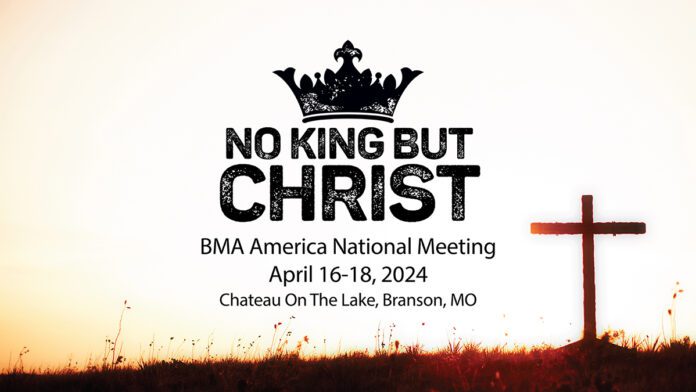By Dr. Clif Johnson, President • BMA of America
Several months ago, some college presidents from “elite” universities were invited to a congressional hearing on Capitol Hill to discuss steps being taken to address the rise in antisemitism on college campuses. In what seemed to be a straightforward question — if calling for the genocide of the Jewish people violated their college’s code of conduct — the presidents delivered not-so-straight answers. They seemed to dance around the question, using lawyer language and the need to discern the context of the particular situation in which the genocide was being demanded.
Genocide is the intentional extermination of a particular group of people. So, the gist of the question that was posed to the college presidents was, “If students on your campus were publicly calling for the deliberate extermination of the Jews, could you, as an administration, take disciplinary action against those calling for the genocide?” This is a straightforward, “yes” or “no” question, that deserves a straightforward, “yes” or “no” answer. But that type of answer was not given by any of the college presidents.
I know the need for the carefully parsed word that is given in public. Nuance and qualifications are meant to clarify, guard and sharpen answers. But little to no qualification is needed when the question is, “Should a college administration be able to bring disciplinary action on students or student groups who publicly call for the elimination of a whole race of people?” The answer is always, “yes.”
What is going on in America when the supposedly most educated people, leading the elite universities, have this much trouble discerning between what is right and wrong, moral and immoral? Some have said that perhaps the presidents of the colleges were wanting to leave some room in being able to defend one of America’s most precious rights, the right to free speech. But surely these presidents know that not all speech is protected speech, such as language that leads to imminent, lawless action. Let me suggest one possible thread to what is surely a multi-dimensional answer to the question posed at the beginning of this paragraph.
Two types of institutions exist — institutions and organizations that thrive by shaping people according to the principles and values instilled found within the institution, or those that seek to thrive by being influenced by the people coming to their institution.
Sometimes leaders are not certain how a “yes” or “no” response would be received by the constituents of their particular institutions, so they run to the land of obscurity, hoping to buy time until they can lick their fingers, stick them up in the air and come up with the right answer that would satisfy all parties involved. Often, when leaders do this, they vacation in this land until polls can be run in order to tell them what to think.
We do not need these types of institutions. Yet, sadly, this seems to be the majority of what we have. These types of institutions tend to be swayed by a money compass instead of a moral one.
I write this to ask you to consider yourself. Would you rather belong to and support institutions that are principled along the path of biblical truth, or would you rather belong to and support institutions that will cave to your desires and demands?
In the Christian worldview, personal desires and demands are so very often carrying the residual effects of the sinful nature and need to be ferreted out by the Holy Spirit within the community of faith, aka the biblical church.
When the church builds out and creates tangential institutions, such as schools, businesses and non-profits, these institutions must also run on principles, not shaped by prevailing public opinion, but shaped by biblical truth, in order to help build men and women into the image of Christ.
For those in pastoral and leadership roles of institutions as the church, Christian schools, Christian non-profits, businesses run by Christians, etc., we must ask the question, “Are we willing to lose people in order to uphold biblical convictions? Are we stalwart enough to be abandoned by the world?”
When it comes to the two types of institutions, one will succeed and the other will erode. I think Jesus said something about the rains coming, the winds blowing and the floods rising, and that the house on the sand going “splat” (or maybe that was my children’s church teacher who said that part). When your consistent approach to making decisions is sticking your finger in the air to see which way the wind is blowing, you are on shifting sand, my friends. Presidents of elite universities may be able to get by with this for a little while, but may we, as churches of the living God, find ourselves with our finger pointing to the text. Let’s continue to build on the truth that we have no king but Christ.
The theme for our national meeting is “No King But Christ,” and I hope to see a great number of you there as we enjoy times of worship, fellowship and taking care of the business of our association. You can find information, including the meeting schedule, hotel information and registration options at bmaamerica.org/nationalmeeting or BaptistTrumpet.com/BMAA2024.



